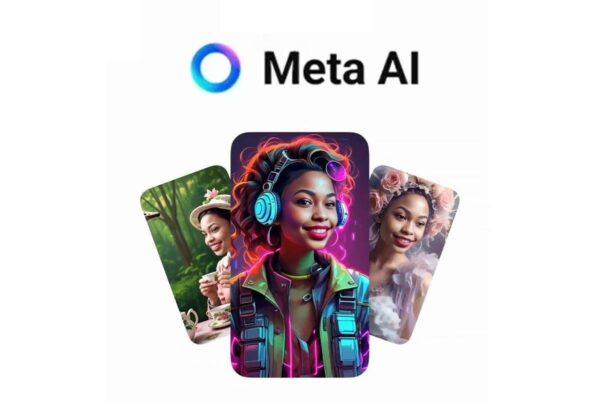
Table of Contents
April was a pivotal month in the world of search engine optimisation, May is no different. And the updates keep coming. From AI reshaping how users interact with results to new policy enforcements and technical updates, here’s a comprehensive look at the latest SEO news and developments, at Solve we know what they mean for your business.
1. AI Overviews Are Disrupting Organic Click-Through Rates
Google’s AI-generated overviews are appearing more prominently in search results — and they’re diverting traffic away from traditional organic listings.
Key Updates:
- CTR drops by 30–35%: Recent studies suggest that organic listings are seeing a 34.5% drop in click-through rates when AI Overviews are present.
- User dependence on summaries: Approximately 30% of users now rely on AI summaries to answer their queries without clicking through.
- Internal Google links: AI Overviews increasingly link to Google’s own services or products, raising concerns about impartiality.
Example:
If someone searches for “how to renew a UK passport”, they may now receive a step-by-step AI-generated summary, complete with government links, meaning fewer people visit travel blogs or official passport agency partner sites.
What to Do:
- Target featured snippet-style content: Summarise answers at the top of your pages.
- Use structured data (like FAQ and HowTo schema) to increase the chances of being included in AI cards.
- Focus on niche long-tail queries where AI Overviews are less dominant.
2. Google Quality Raters to Flag AI-Generated Content
In other SEO news, Google has updated its guidelines for human quality raters, introducing new criteria for judging whether content is AI-written — and if so, whether it’s trustworthy.
Key Updates:
- Poor quality score for unedited AI content: If AI-generated content appears to lack human oversight, it will likely be rated as low quality.
- E-E-A-T still reigns supreme: Content creation must still demonstrate Experience, Expertise, Authoritativeness and Trustworthiness to be considered high quality.
Example:
A tech website that publishes dozens of AI-written product reviews with no clear author, no personal insights, and no citations could be penalised in quality evaluations.
What to Do:
- Always edit AI-generated content manually and add expert review where appropriate.
- Include real-world experience, named authors, references and original photos where possible.
- Add an editorial policy and about page to demonstrate trust.
- If you’re publishing informative content that people want to read, you’re already on your way.
3. Hourly Data Now Available in Google Search Console
A powerful new update to Google Search Console (GSC) allows users to access hour-by-hour data, giving far more precision for traffic analysis.
Key Updates:
- Hourly breakdowns for up to 10 days available via the Search Analytics API.
- Same-day vs last-week comparisons now possible within GSC’s interface.
- Enables better detection of traffic anomalies, campaign effects, and even spam or bot traffic.
Example:
An e-commerce site that launched a flash sale at 2pm can now pinpoint exactly how traffic and clicks evolved in each hour during the promotion.
What to Do:
- Set up API access for your reporting dashboards if you haven’t already.
- Use hourly data to test page updates or identify dips caused by technical issues.
- Agencies: Use this data to demonstrate ROI to clients in real-time.
4. Google’s Parasite SEO Crackdown Under Fire
Google’s new policy against so-called “parasite SEO” — third-party content hosted on strong domains purely for rankings — is facing backlash, including formal complaints in the EU.
Key Updates:
- “Site Reputation Abuse” enforcement began this month, targeting spammy third-party content.
- A German publisher, Meraki Group GmbH, has filed an antitrust complaint in the EU, arguing that the policy penalises legitimate partnerships.
- Concerns have been raised about transparency and the lack of clear criteria for enforcement.
Example:
If a local news site sells a branded article about crypto investing to a third party, and it ranks well purely due to the site’s authority, that page may now be de-indexed — even if it follows journalistic standards.
What to Do:
- Audit your sponsored content and guest posts for quality and relevance.
- Avoid publishing third-party content unless it genuinely aligns with your audience and editorial focus.
- Disclose paid placements clearly and maintain editorial control over all published content.
5. Google Discover Rolling Out to Desktop
Google Discover — the personalised feed seen on Android phones and Chrome’s homepage — is now coming to desktop users.
Key Updates:
- Discover feeds are now visible on Google.com’s desktop homepage for selected users.
- Publishers could see new traffic spikes, especially from visually engaging or trending articles.
- Optimisation for mobile and Discover is now relevant to desktop performance too.
Example:
A food blog posting seasonal recipes with high-quality images and schema markup may now see increased desktop traffic from users who previously only discovered them on mobile.
What to Do:
- Create visually rich, click-worthy headlines and thumbnails.
- Publish timely, trend-driven articles (e.g. tied to seasonal events, holidays or breaking news).
- Monitor Discover performance in GSC’s dedicated section and segment by device.
6. Social Platforms and AI Are Disrupting Web Traffic
A broader industry trend this month has been the continued decline in direct website traffic, especially for publishers, due to AI and social media platforms offering instant information.
Key Updates:
- Publishers report up to 50% traffic drops over the past 12 months.
- Younger audiences are relying on YouTube, TikTok and Reddit for information instead of websites.
- AI-generated summaries from platforms like ChatGPT and Google are answering questions without links to source material.
Example:
A music news site publishing concert reviews and album write-ups may find users now favour watching 60-second TikToks over reading full articles.
What to Do:
- Adopt a multi-platform strategy, repurpose content into video, audio, and visual formats.
- Invest in engagement-led content, such as polls, comments, and community posts.
- Use clear calls to action to drive users back to your site from social posts and email campaigns.
7. Google Search Experiments With “AI Mode”
Google is slowly rolling out a more conversational AI Mode in search results, powered by its Gemini 2.0 model.
Key Updates:
- Available in limited regions (including parts of the US) and may expand globally in the next quarter.
- Search queries are answered using natural language responses, often bypassing traditional links.
- Includes inline tools such as calculators, translators, and AI image creation.
Example:
If you search for “best laptop for university students”, AI Mode might now give you a bullet-point comparison of five models, without needing to visit a tech review site.
What to Do:
- Focus on content that addresses complex or layered queries in detail.
- Improve semantic structure — ensure your pages answer multiple related sub-questions.
- Use comparison tables, FAQs, and decision guides to enrich your content.
Final Thoughts: What This Means for Your SEO Strategy
The world of SEO is evolving rapidly. AI is changing how users consume information, Google is tightening the rules around trust and authority, and social platforms are becoming dominant information sources.
To succeed in 2025, your SEO strategy must:
- Be multi-platform and multi-format.
- Prioritise authentic, human-edited content.
- Embrace tools like hourly GSC data and Discover feed optimisation.
- Avoid shortcuts like low-quality third-party content.
Summary
April 2025 has been a month of significant change in the SEO world. From the growing impact of Google’s AI Overviews on search behaviour to regulatory scrutiny of new spam policies, the search landscape is evolving rapidly.
The most notable developments include:
- A substantial drop in organic click-through rates due to AI-generated summaries now featured in search results.
- Google’s human quality raters are now tasked with identifying AI-generated content and scoring it accordingly, reinforcing the importance of editorial oversight.
- Search Console now provides hourly performance data, offering SEOs more precise and timely insights.
- Google’s enforcement of its “site reputation abuse” policy has triggered legal challenges in Europe, with concerns raised over fairness and transparency.
- Google Discover is now rolling out to desktop users, giving publishers a fresh opportunity to gain visibility beyond the traditional SERPs.
- Social media and AI tools continue to pull users away from websites, forcing publishers to rethink how they distribute and repurpose content.
- AI-powered search experiences — such as Gemini’s conversational “AI Mode” — are in early testing and likely to be expanded soon.
Conclusion
SEO in 2025 is no longer about simply ranking highly for keywords, it’s about meeting users where they are: whether that’s personalised feeds, short-form social content, or by adopting AI SEO to feature in AI summaries.
To stay ahead, brands must:
- Create human-reviewed, experience-led content that builds trust.
- Use structured data to improve visibility in AI and Discover formats.
- Embrace a multi-format, multi-platform content strategy.
- Adapt quickly by using new tools such as hourly reporting in Search Console.
At Solve, we keep our clients at the cutting edge of SEO by translating these developments into meaningful results. If you’d like to understand how these changes could affect your site — or how to turn them into an opportunity — get in touch with us today.





